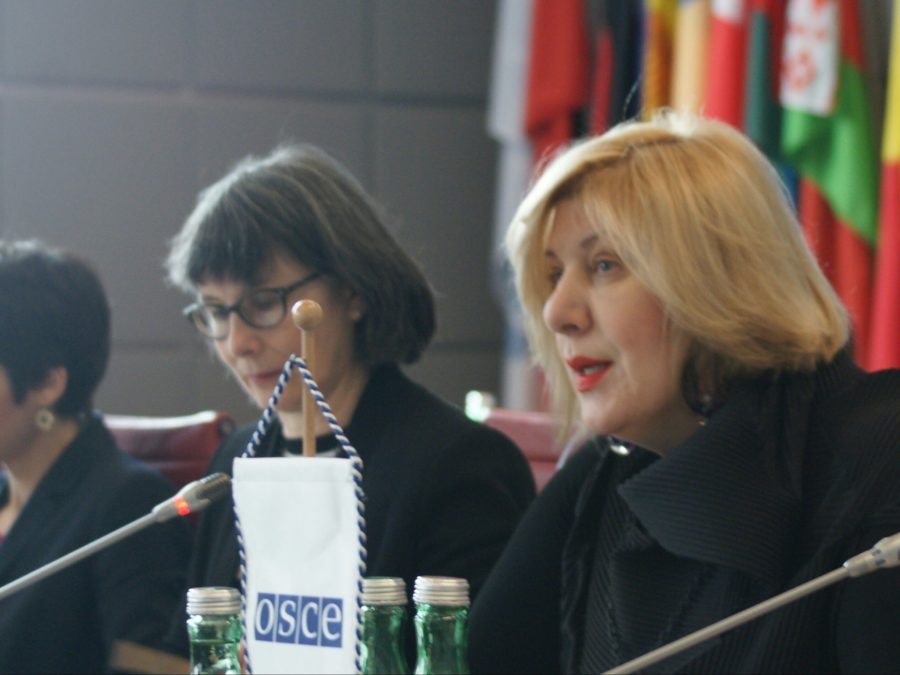8th March 2017
Shifting Dynamics

I am one of 20 women ambassadors at the Organization for Security and Co-operation in Europe. We are 35% of the total (possibly the highest proportion at any multilateral organisation?). Women are also well represented at other levels in many OSCE delegations.
It has been suggested to me that this might be because the OSCE deals with ‘soft’ security – but there is nothing fluffy about Conventional Arms Control or Conflict Prevention, both high on my priority list. The OSCE however is a good forum for anyone who cares about gender issues. As Chair of the Human Dimension Committee I have this year timetabled discussions on ‘Women, Peace and Security’, and on ‘Women’s Participation in Political and Public Life’, as well as issues with a gender angle such as Modern Slavery and Human Trafficking. My Delegation has also worked to highlight the issues of domestic violence and sexual violence in conflict, including with a well-received visit of Baroness Anelay here last summer.
The OSCE itself needs more diversity among its own senior staff. Until last summer two out of four top jobs were held by women. Competition to replace all four is currently open, with less than one third of the candidates women (from UK, Iceland, Belarus and Kyrgyzstan). Hopefully their experience, skills and impact will ensure a balanced outcome: international role models are important.
The ambassadorial gender balance may not appear to make a significant difference to formal debate in the Permanent Council (our equivalent of the UNSC/UNGA). But it can affect dynamics outside it. With women ambassadors representing countries as large as Canada and as small as Liechtenstein, and as different as Belarus and Denmark, we bring a range of perspectives replicated in few diplomatic groupings. Although our first responsibility is to represent our respective national interests we also offer a human support network and have lobbying potential especially, but not only, on gender issues.
Increasing women’s participation in security and international affairs is not just about equality as a matter of principle. It is not even just about making full use of our countries’ human resources: there is good evidence that peace settlements negotiated with the involvement of women have significantly better sustainability. There are some fantastic examples of women led post-conflict reconciliation work under OSCE auspices, which I believe could be replicated elsewhere, but still too many conflict management processes and mechanisms where women are absent or underrepresented. If we can continue quick progress towards gender balance across the OSCE, along with ‘mainstreaming’ gender angles across our activities, we have the potential to build a qualitatively different multilateral organisation. It would be wonderful to think this could help unlock some of the apparently intractable ‘protracted’ conflicts on our continent…….though this is likely to take some shifts in political culture too. More women leaders, perhaps?
Meanwhile, my own team, UKDel OSCE has a 50/50 gender balance. All of us are all committed to promoting equality and diversity, not only on designated days but 365 days a year